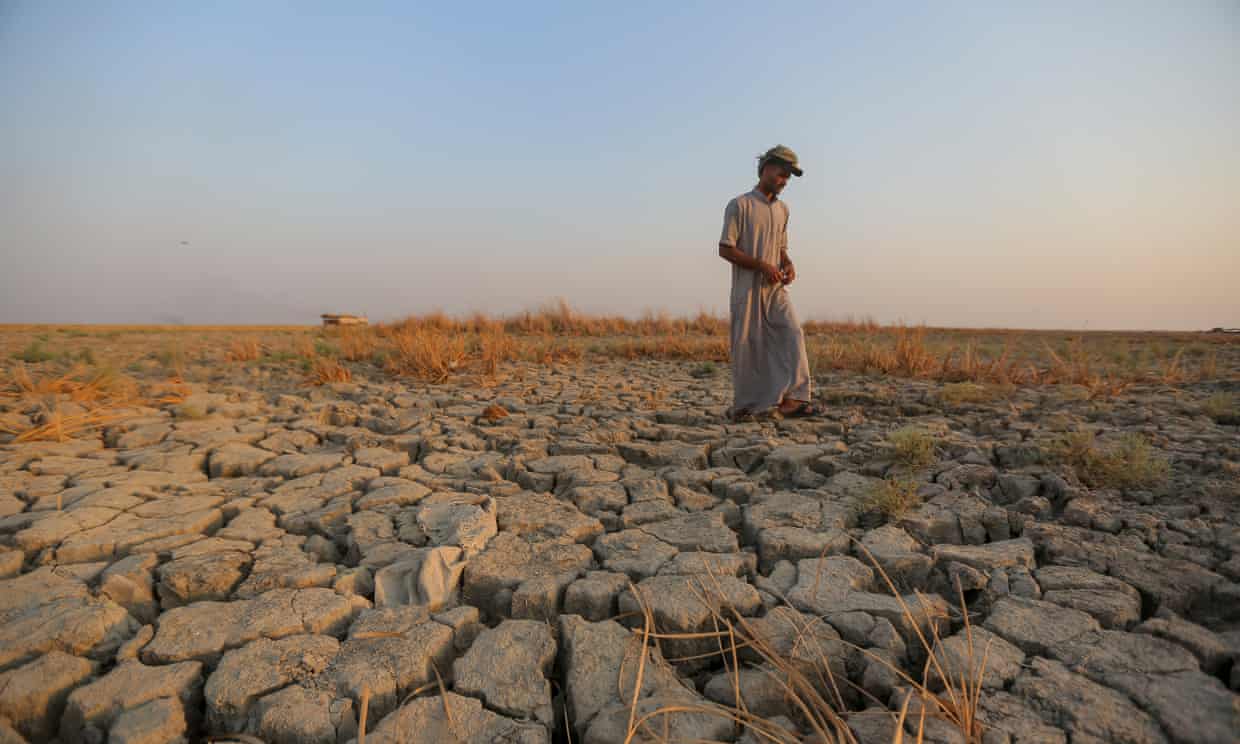
Extreme droughts that have wrecked the lives of millions of people in Syria, Iraq and Iran since 2020 would not have happened without human-caused global heating, a study has found.
The climate crisis means such long-lasting and severe droughts are no longer rare, the analysis showed. In the Tigris-Euphrates basin, which covers large parts of Syria and Iraq, droughts of this severity happened about once every 250 years before global heating – now they are expected once a decade.
In Iran, extreme drought occurred once every 80 years in the past but now strikes every five years on average in today’s hotter world. Further global heating, driven by the burning of fossil fuels, will make these droughts even more common.
The study also found that existing vulnerability from years of war and political instability had reduced people’s ability to cope with the drought, turning it into a humanitarian disaster.
In Syria, 2 million rural people have been displaced and 12 million people – 60% of the population – were reportedly experiencing food insecurity. Almost every province of Iran has been severely affected by the drought and poor harvests have caused spikes in food prices.
The researchers said it was vital to plan for more frequent droughts in the future.